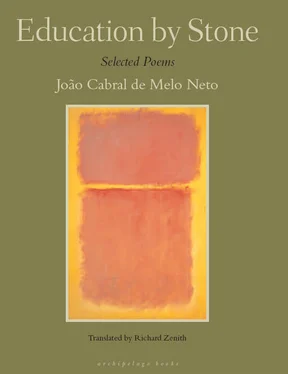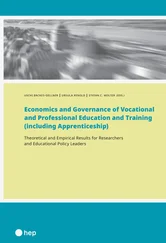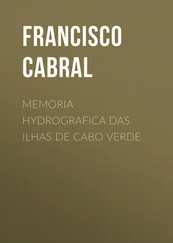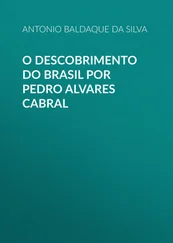Joao Cabral de Melo
Education by Stone
About the Selection and Translation
João Cabral de Melo Neto’s poetry was at its strongest between 1950 and 1980, and the selection presented here is weighted accordingly. His last book, Sevilha Andando , was published in 1989. João Cabral said he imagined writing poems that could only be read silently, and he claimed to be incapable of writing poetry without seeing the words on the page. In fact he quit writing it after he went blind, in the 1990s, and he described himself to reporters as an “ex-writer.”
Rather than offering excerpts from the author’s various long narrative poems, two such poems are presented in their entirety. Elizabeth Bishop’s translation of sections from Morte e Vida Severina [The Death and Life of a Severino] are included in her The Complete Poems (Farrar, Straus & Giroux, 1969) and in João Cabral’s Selected Poetry, 1937–1990 (Wesleyan, 1994).
The Afterword examines João Cabral’s poetics and discusses a number of the poems translated here. Lest readers imagine that some words were accidentally left out, let it be noted that a few poems —“The Dog without Feathers,” “Weaving the Morning” and “Banks and Cathedrals” are examples — employ syntactical ellipses, a device that I have usually tried to replicate in the translation.
Ten of the translations in this volume were first published, with some significant differences, in the Wesleyan Selected . Others were published in Paris Review, Grand Street, The Atlantic, Partisan, The New England Review, Chicago Review , and World Literature Today . Much of the Afterword was adapted from an article on João Cabral de Melo Neto published in Latin American Writers , Supplement I, Scribner’s, 2002. Readers may refer to that article for a fuller treatment of the poet and his work, as well as a bibliography.
I thank the National Endowment for the Humanities for supporting this project with a translation grant in 1985. I also thank the Endowment for its patience. The John Anson Kittredge Educational Fund kindly provided a supplementary grant. It was David Haberly who encouraged me to do an entire book and to apply for funding.
Dora Feiguin, Elizabeth Marques, Manuela Rocha and Marcia Rodrigues graciously clarified difficult passages. Several people who provided practical help or moral support are no longer with us: Frank MacShane, Haroldo de Campos, and the poet himself, João Cabral de Melo Neto, who said he hated to see translations of his poetry into languages he knew. He tolerated me anyway.
R.Z .
Education by Stone
Selected Poems
from Pedra do sono / Stone of Sleep 1942
Janelas
Há um homem sonhando
numa praia; um outro
que nunca sabe as datas;
há um homem fugindo
de uma árvore; outro que perdeu
seu barco ou seu chapéu;
há um homem que é soldado;
outro que faz de avião;
outro que vai esquecendo
sua hora seu mistério
seu medo da palavra véu;
e em forma de navio
há ainda um que adormeceu.
Windows
There’s a man dreaming
on a beach, another
who never remembers dates.
There’s a man running away
from a tree, another missing
his boat or his hat.
There’s a man who’s a soldier,
another who acts like an airplane,
another who keeps forgetting
his time his mystery
his fear of the word veil.
And there’s yet another who,
stretched out like a ship, fell asleep.
Poesia
Ó jardins enfurecidos,
pensamentos palavras sortilégio
sob uma lua contemplada;
jardins de minha ausência
imensa e vegetal;
ó jardins de um céu
viciosamente freqüentado:
onde o mistério maior
do sol da luz da saúde?
Poetry
O raging gardens,
thoughts words sorcery
under a contemplated moon,
O gardens of my vast
vegetable absence,
gardens of an enchanting,
addictive sky:
where is the larger mystery
of light the sun health?
O poema e a água
As vozes líquidas do poema
convidam ao crime
ao revólver.
Falam para mim de ilhas
que mesmo os sonhos
não alcançam.
O livro aberto nos joelhos
o vento nos cabelos
olho o mar.
Os acontecimentos de água
põem-se a se repetir
na memória.
Water and the Poem
The poem’s liquid voices
lure me to crime
to a revolver.
They tell me of islands
not even dreams
can reach.
With open book on my knees
and wind in my hair
I look at the sea.
What happens in water
starts repeating
in memory.
from O engenheiro / The Engineer 1945
A bailarina
A bailarina feita
de borracha e pássaro
dança no pavimento
anterior do sonho.
A três horas de sono,
mais além dos sonhos,
nas secretas câmaras
que a morte revela.
Entre monstros feitos
a tinta de escrever,
a bailarina feita
de borracha e pássaro.
Da diária e lenta
borracha que mastigo.
Do inseto ou pássaro
que não sei caçar.
The Dancer
The dancer made
of rubber and bird
dances on the floor
before the dream.
Three hours into sleep,
beyond all dreams,
in the secret chambers
which death reveals.
Among monsters made
with writing ink,
the dancer made
of rubber and bird.
Of the slow and daily
eraser I chew.
Of the insect or bird
I cannot catch.
O engenheiro
A luz, o sol, o ar livre
envolvem o sonho do engenheiro.
O engenheiro sonha coisas claras:
superfícies, tênis, um copo de água.
O lápis, o esquadro, o papel;
o desenho, o projeto, o número:
o engenheiro pensa o mundo justo,
mundo que nenhum véu encobre.
(Em certas tardes nós subíamos
ao edifício. A cidade diária,
como um jornal que todos liam,
ganhava um pulmão de cimento e vidro.)
A água, o vento, a claridade,
de um lado o rio, no alto as nuvens,
situavam na natureza o edifício
crescendo de suas forças simples.
The Engineer
Light, sun and the open air
surround the dream of the engineer.
The engineer dreams clear things:
surfaces, tennis, a glass of water.
A pencil, a T-square, paper;
designs, projects, numbers.
The engineer sees the world just
as it is, without any veils.
(On certain days we went up
the building. The daily city,
like a daily paper read by all,
was gaining a lung of cement and glass.)
The water, the wind, the brightness,
the river on one side and the clouds on high
made a place in nature for the building,
growing by its own simple strength.
A mesa
O jornal dobrado
sobre a mesa simples;
a toalha limpa,
a louça branca
e fresca como o pão.
A laranja verde:
tua paisagem sempre,
teu ar livre, sol
de tuas praias; clara
e fresca como o pão.
A faca que aparou
teu lápis gasto;
teu primeiro livro
cuja capa é branca
e fresca como o pão.
E o verso nascido
de tua manhã viva,
de teu sonho extinto,
ainda leve, quente
e fresco como o pão.
The Table
The folded newspaper
on the simple table;
the tablecloth clean,
the dishes white
and fresh like bread.
The green-skinned orange:
your unfailing landscape,
your open air, the sun
of your beaches: bright
and fresh like bread.
The knife that sharpened
your spent pencil;
your first book
whose cover is white
and fresh like bread.
And the verse born
of your living morning,
of your finished dream:
still warm, light
and fresh like bread.
Читать дальше










